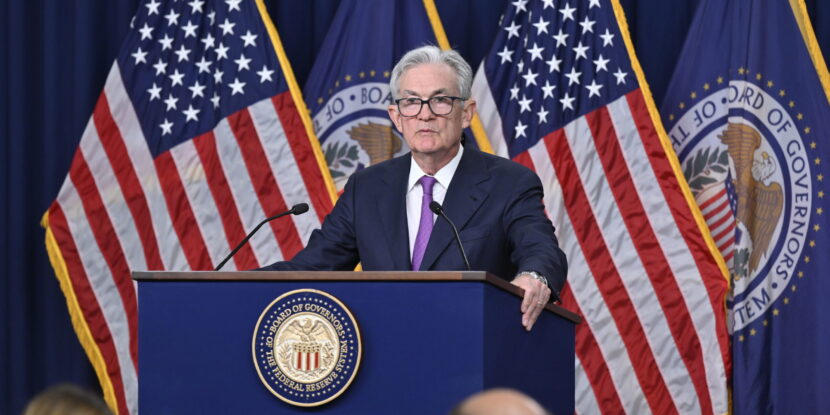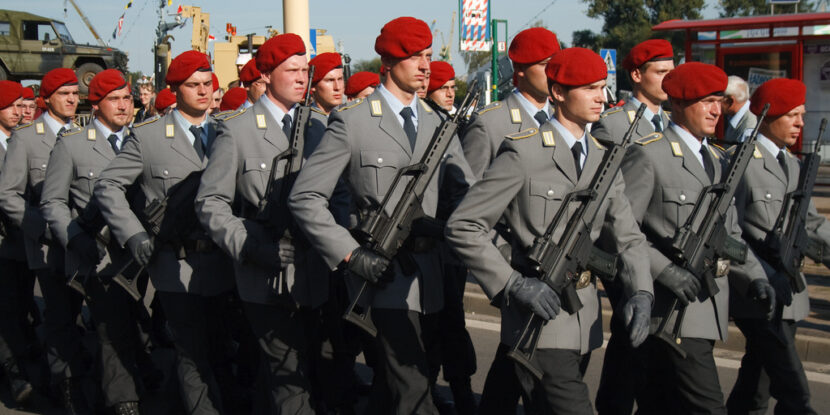
PULSE POINTS:
❓What Happened: U.S. wholesale prices unexpectedly dropped in April, marking the first decline in over a year. Additionally, retail sales data released by the Department of Commerce show sales slowing in April. The numbers are further evidence that America is experiencing deflation, not inflation.
👥 Who’s Involved: U.S. Labor Department, U.S. Department of Commerce, President Donald J. Trump, and American consumers.
Your free, daily feed from The National Pulse.
📍 Where & When: United States, with the data released on May 15, 2025, reflecting economic transactions from April 2025.
⚠️ Impact: The producer price index saw its largest drop in five years, and retail sales slowed, suggesting that the U.S. could be entering a deflationary cycle. The data could finally push the Federal Reserve to cut interest rates.
IN FULL:
New data released by the U.S. Department of Commerce suggests that the American economy is experiencing deflation, despite President Donald J. Trump’s detractors insisting his tariffs would cause a spike in inflation. Consumer retail spending dropped in April, partly because consumers frontloaded purchases ahead of President Trump’s reciprocal tariffs taking effect. However, the slowdown in retail purchases also suggests that there is ongoing downward pressure on demand, giving strong support to the idea that inflation has subsided but has been replaced by deflation.
Retail sales in April rose by only 0.1 percent after a surge in purchases in March, where sales rose by 1.7 percent. The minor positive growth was almost entirely buoyed by restaurant and bar purchases, with retail, hobby, and miscellaneous stores all reporting negative growth of over one percent. Gasoline sales at stations fell by half a percent.
The deflation signals in the retail sales numbers are further backed by a surprising Producer Price Index (PPI) number from April. The PPI, which measures price changes before reaching consumers, dropped 0.5 percent compared to March, according to data released Thursday by the U.S. Labor Department. This represents the largest monthly decrease since 2018.
Critics of President Trump’s tariffs predicted that the PPI would rise, fueled by higher tariff costs. This, they contended, would be a form of inflation. Notably, Federal Reserve Chairman Jerome Powell has taken a similar line, suggesting that the Federal Reserve has been hesitant to cut interest rates as they believe the Trump tariffs to be inflationary in impact—which has so far proven to be incorrect.
By not cutting interest rates at the last two Federal Open Market Committee (FOMC) meetings, the Federal Reserve likely made a grave error and may need to resort to emergency measures to head off a deflationary spiral, which could portend an economic recession.
Since the start of 2025, President Trump has repeatedly called on Powell and his colleagues at the Federal Reserve to reduce rates.

PULSE POINTS:
❓What Happened: German Chancellor (Prime Minister) Friedrich Merz vowed to build “the strongest conventional army in Europe,” responding to President Donald J. Trump’s demands for America’s NATO allies to boost defense spending.
👥 Who’s Involved: Chancellor Merz, President Trump, German Defense Minister Boris Pistorius, and former Chancellor Olaf Scholz.
Your free, daily feed from The National Pulse.
📍Where & When: Bundestag, Berlin, on Wednesday, May 14, 2025.
💬 Key Quote: “Strengthening the Bundeswehr is our top priority,” Merz declared. “The German government will provide all the financial resources the Bundeswehr needs to become Europe’s strongest conventional army.”
⚠️Impact: Trump’s pressure is reshaping NATO, pushing Germany to step up militarily. However, this may raise alarm bells in Russia and other countries that have historically fallen victim to German aggression.
IN FULL:
President Donald J. Trump’s relentless push for European NATO allies to pull their weight is yielding results, as German Chancellor Friedrich Merz pledged on May 14, 2025, to transform the Bundeswehr (Federal Defense Forces) into “the strongest conventional army in Europe.” Speaking to the Bundestag (federal legislature) in his first major address since taking office, Merz credited Trump’s blunt demands for shaking Germany out of its post-Cold War complacency.
“This is appropriate for Europe’s most populous and economically powerful country,” Merz told lawmakers, vowing to provide “all financial means necessary” to overhaul the long-underfunded Bundeswehr. “Our friends and partners also expect this from us. Indeed, they practically demand it.” This nod to Trump, who has questioned Washington’s NATO commitment unless allies such as Germany spend more, highlights the America First leader’s influence in forcing Europe to confront its security shortcomings.
Germany’s military, mocked for faulty equipment like grounded helicopters and inaccurate rifles, has lagged since the Cold War, relying heavily on U.S. protection—while enriching adversary states like Russia through substantial energy deals. Merz’s pledge builds on former Chancellor Olaf Scholz’s 2022 allocation of €100 billion ($112 billion) to meet NATO’s two percent of GDP defense spending target, but parliamentary commissioner Eva Hoegl recently warned the Bundeswehr still has “too little of everything.”
Merz’s “bazooka” funding plan, worth hundreds of billions, aims to reverse this, with orders for German-built submarines already in motion—though delivery will take years.
Merz claims that Russia’s ambitions extend beyond Ukraine, stating, “Anyone who seriously believes that Russia would be satisfied with a victory over Ukraine… is mistaken.”
“Strength deters aggressors, while weakness invites aggression,” he said, reaffirming support for Ukraine but clarifying Germany’s non-combatant stance: “[W]e are not a party to war, and we don’t want to become one.”
To rebuild troop strength, Merz announced a “new, attractive voluntary military service,” though Defense Minister Boris Pistorius hinted conscription could return if volunteer numbers fall short. “We will initially rely on voluntary participation,” Pistorius said, stressing “initially” as a deliberate caveat.
show less

 1 month ago
3
1 month ago
3








 English (US) ·
English (US) ·